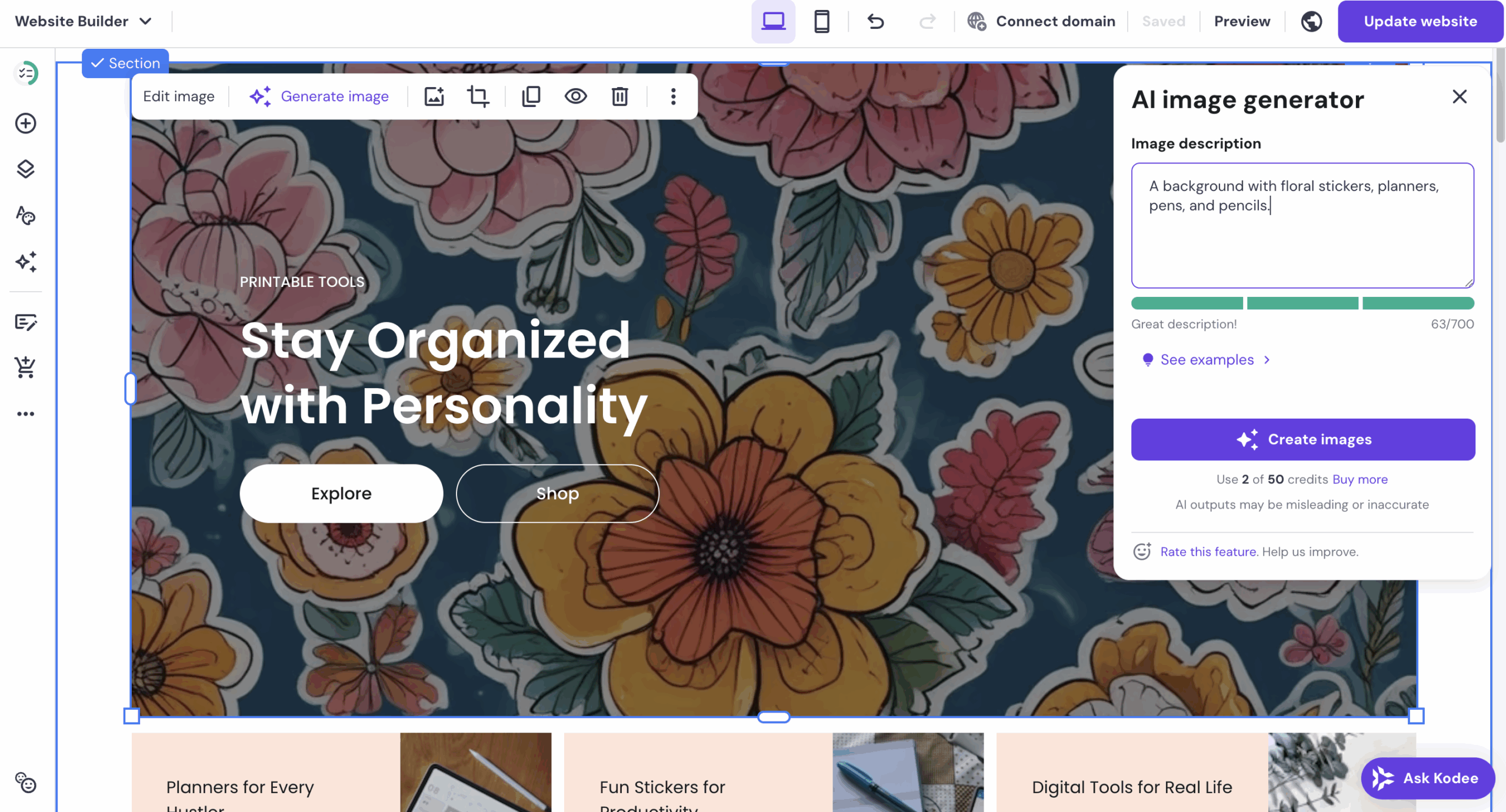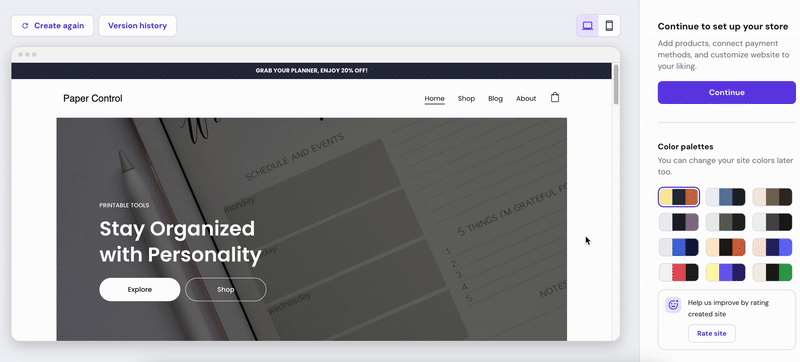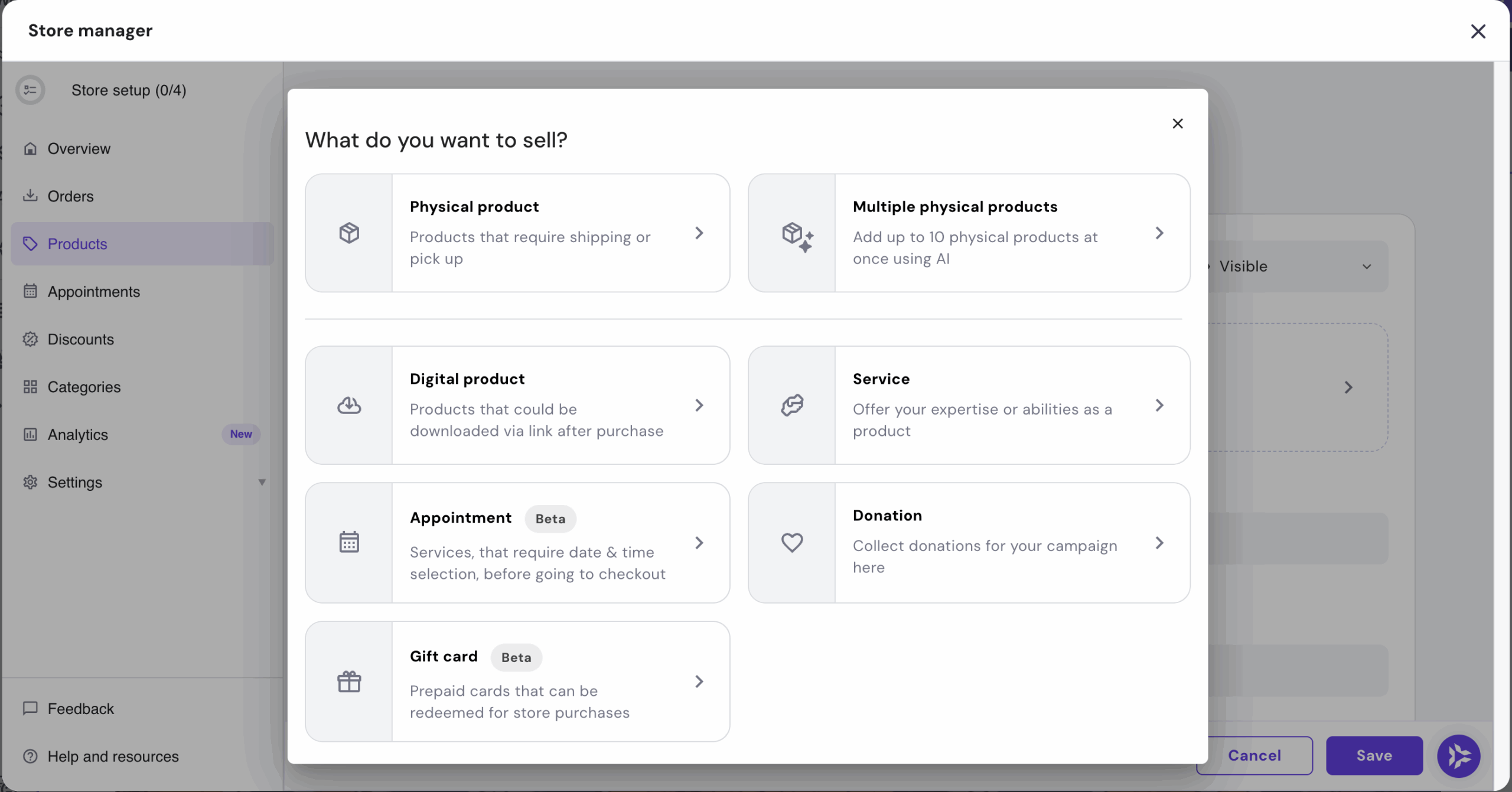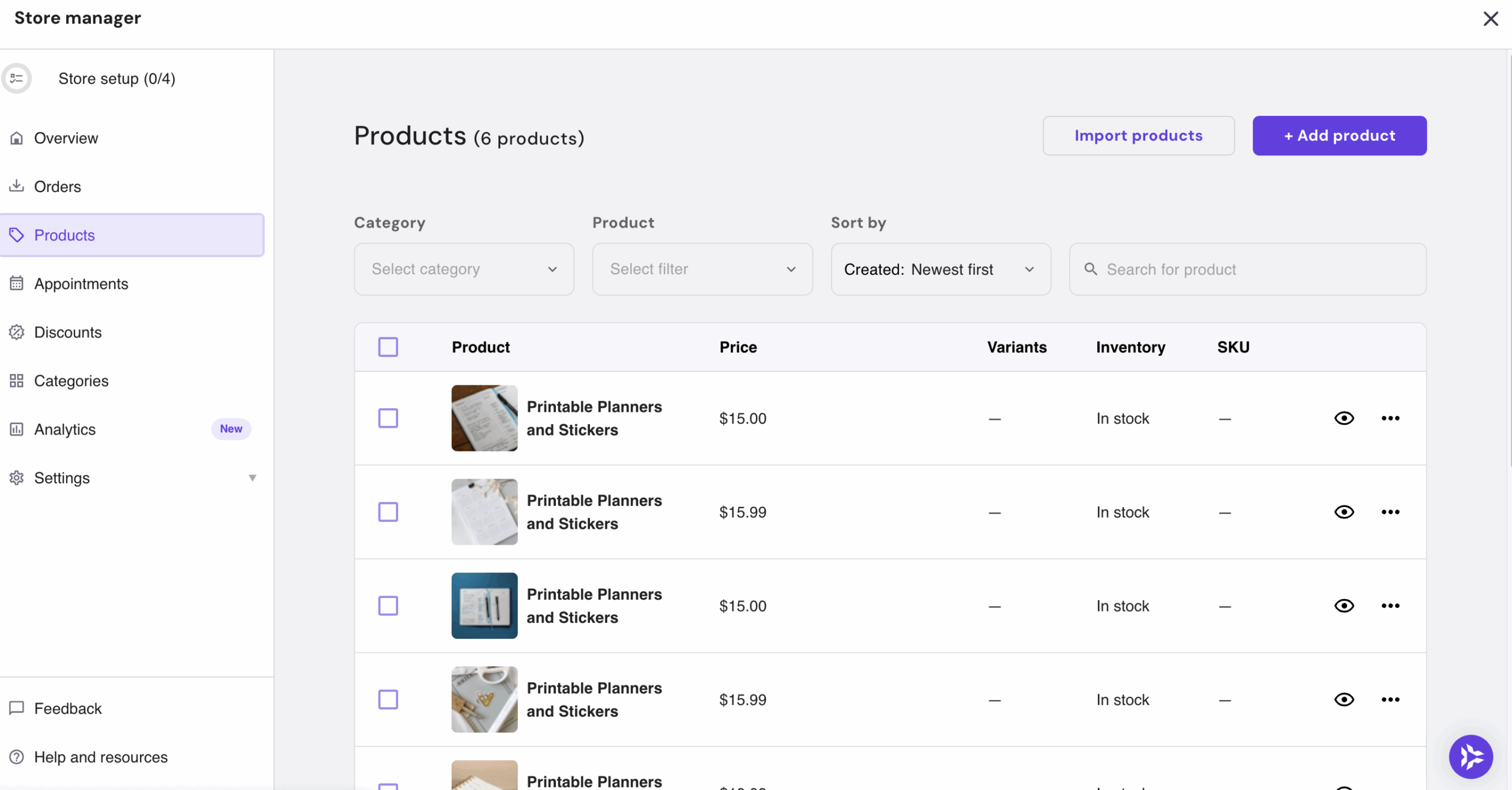I Tested Shopify and Hostinger for My Creative Biz — Here’s What I Wish I Knew Sooner
One made me feel like I needed a developer. The other got me up and running in an afternoon.
By: Devin Johnson
Last Updated: May 2025
Key Similarities:
- Both offer AI site-building tools with e-commerce features and customizable templates.
Key Differences:
- Hostinger’s e-commerce plan starts at $3.99/month with two months free. Shopify’s lowest plan offers $1/month for the first three months, then $29/month.
- While both come with free domains, Hostinger offers a custom “.com” compared to Shopify’s non-custom “.myshopify.com”
Like most people trying to turn a side hustle (in my case, quirky stickers) into something real, I needed a site that was easy to build and affordable to run. I tested Shopify first. It’s the big name, right? But then someone on Reddit called Hostinger “way less headache-y,” so I gave it a shot too.
Pricing and plans
I was initially hooked by Shopify’s $1/month deal for the first three months — tempting, for sure. But I wasn’t building a temporary site. After that intro period, the price jumps to $29/month — and that’s before you factor in paid themes or extra apps.
Hostinger, on the other hand, felt way more beginner-friendly budget-wise. I locked in a Business Web Hosting plan for just $3.99/month for the annual plans, and even the renewal rate ($8.99/month on the four year plan) still felt manageable.
It also came with a custom domain and email — compared to Shopify’s free but branded “.myshopify.com” domain. Having that custom “.com” on my URL gave my small biz two feet to stand on.
Was it a long-term commitment? Yes. And no, there wasn’t a free trial. But honestly, that pushed me to actually commit and get my site live instead of endlessly tinkering. And for the price, I felt like I got more than enough value upfront to make it worth the leap. These kinds of long-term plans are pretty standard if you want the lowest rate anywhere — and in this case, it actually worked in my favor.
Winner: Hostinger
Ease of use
This was my first stab — Hostinger’s AI generator made this for me in 30 seconds (yes, for real).
Meanwhile, this was Shopify’s first go at building my site. Not horrible, but certainly not as impressive.
Setting up a Shopify store looks sleek, but there are a lot of steps. I kept having to Google things like “how to edit the footer” or “why is my home page blank.” You build the store through a template system, but there’s still a learning curve if you’re not used to e-commerce platforms. I’m pretty tech savvy, but even I felt out of my wheelhouse.
Hostinger’s website builder? Way smoother for someone like me. Their editor actually makes sense, and the AI site builder basically asked me a few questions, whipped up a layout, and let me tweak everything visually with drag and drop. I had something usable in under an hour.
Winner: Hostinger
Features for beginners
Shopify definitely has a strong app ecosystem. If you want to do fancy email marketing or deep analytics, it’s there — for a price. But that stuff felt like overkill for me when I just needed a good-looking homepage and a product page that worked.
Hostinger had fewer bells and whistles, but what was there made perfect sense for a first-timer. The AI tools helped me write product blurbs, generate images, and optimize basic SEO without having to hire anyone. It also comes packed with essentials like shipping options, order management, and over 100 payment methods — all built in, no paid plugins required. It’s not built for giant brands, but if you’re launching your first store, it has everything you actually need without making you dig or pay extra.
Winner: Hostinger
E-commerce features
Hostinger gives you the right foundation without piling on costs. Their e-commerce builder comes with real selling tools and perks baked in: product pages, inventory management, shipping settings, order tracking, analytics, and even 0% transaction fees (hey, more profit for me!). Plus, all those AI tools I mentioned above let you set things up fast without buying any add-ons or wasting too much time.
Shopify is more powerful for enterprise-level stores — with things like a full POS system, customer segmentation, and advanced automation. But most of those features only make sense once you’re at a serious scale — and you’ll pay for them. It really depends on what you’re looking for, both offer great features.
Winner: Tie
Room to grow
I’ll give Shopify this: It scales well. But I quickly realized that every time I wanted to add something — email tools, analytics, even a decent-looking theme — it came with a price tag. It’s great if you’re building a full-on e-commerce empire, but for someone like me, trying to grow a creative business without going broke? Not the move.
I’m not trying to be Amazon. I just wanted to build something real without spending more than I earn. Hostinger helped me sustainably grow my brand with a solid site, tools to maximize my revenue, and simple ways to update my content. And it all came baked in, without needing ten plugins or a higher-tier plan.
Winner: Hostinger
What made the decision for me
I’ll admit that Hostinger’s lack of a free trial made me hesitate. But once I saw how easy it was to get started — and how much less I was paying each month — I felt good about the choice.
Hostinger gave me the freedom to focus on my business, not just the tech behind it. You can get started below for just $3.99/month with 2 months free.
Overall Winner: Hostinger
Advertiser Disclosure
StackSocial works with a variety of merchants and brands to bring you deals worth talking about. We may earn a referral commission on purchases made through our links.




